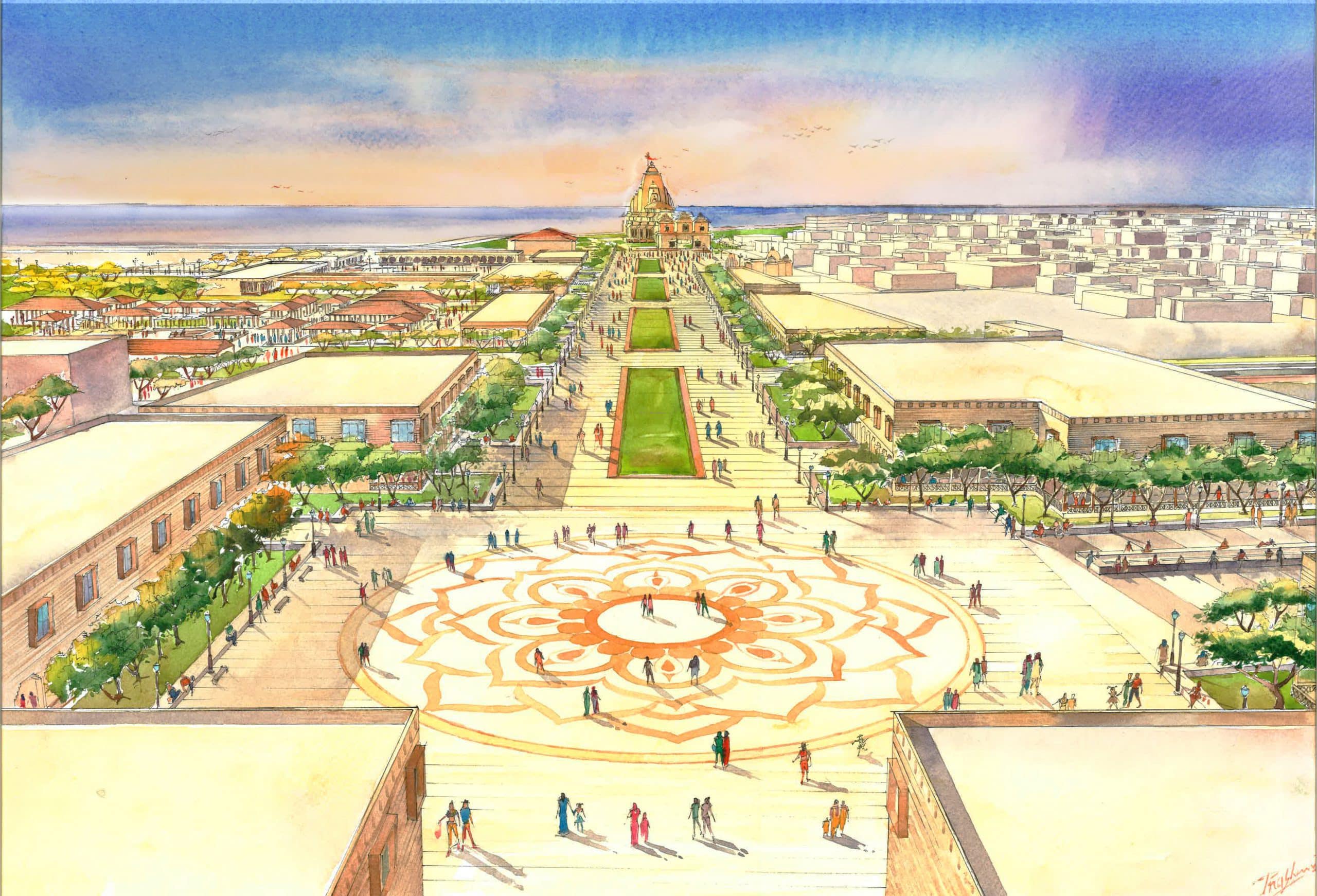
Development of Iconic Tourist Sites In
India - Somnath
Somnath, Gujarat, India
Development Plan for Somnath Temple Town has integrated planning at its core, bringing in connections between temple precinct and rest of the town and developing the precinct to enhance the overall experientiality and efficiency. Further, the plan focuses on developing secondary nodes offering different tourists services that are contextual to the location and also offer a wholesome experience. The project was one of the 17 sites identified by Ministry of Tourism, GoI to be developed as Iconic Tourist Site. The master plan studied and proposed interventions at the municipal level, regional level and the temple precinct level. The proposed projects focus on: Enhanced Access and Connectivity; Redevelopment of temple precinct; Capitalizing upon the existing heritage potential in Somnath; Developing new tourism products to make Somnath a wholesome tourist destination and widen public benefits; Upgradation of public amenities and infrastructure facilities; Strengthen the branding & marketing; Enable community integration with the tourist activities.
Size : 350 Acres + Surrounding Region
Services : Master Planning, Sustainability, Urban Design, Viability Assessment, Feasibility & Impact Analysis, Infrastructure Gap Assessment, Development Plan (DP) and Identification of Project Shelff
Collaboration : Jones Lang Lasalle (JLL)
Share ►
Sustaining the Icon Through a Supportive Infrastructure Circuit
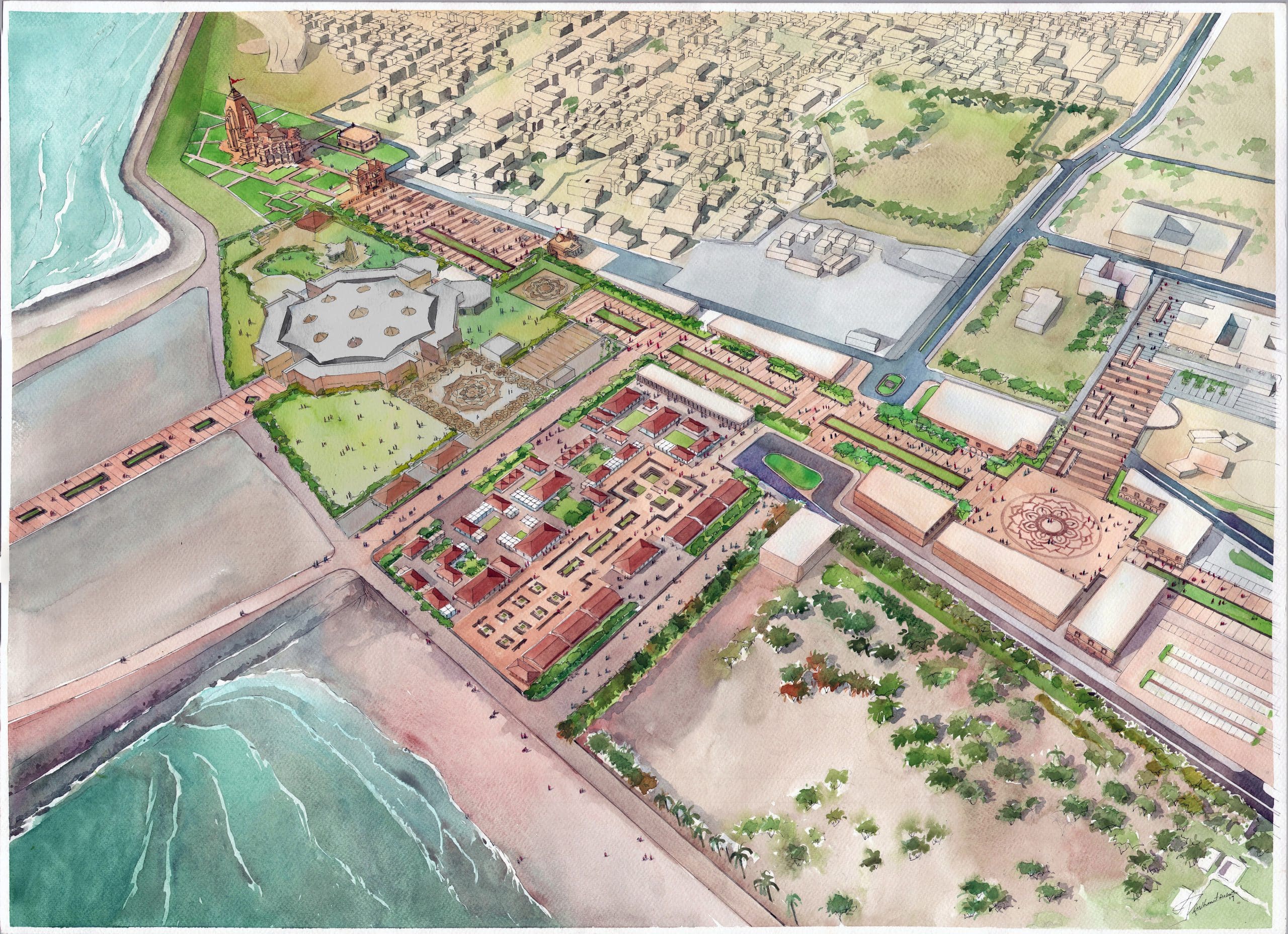
Three Level Strategy to Vitalise Tourism
One of the 17 from sites all over the country which were identified by the Government of India to be developed as iconic sites for tourism to flourish was the city of Somnath in southern Gujarat with its historic and legendary Shiva Temple. The temple housing one of the 12 Jyotirlingas, destroyed by several invaders in history and rebuilt as many times, most recently in 1947-1951 in the Chalukya architectural style, is one of the most revered temples in India, a prime pilgrimage destination for Hindus. Thus, religious tourism being the critical element of the aimed development with the temple as its focus, INI developed its plan along a three-pronged approach integrating the temple precincts, the city municipal administration as well as a set of tourism-worthy nodes around the region to substantiate and support the destination’s tourism environment.
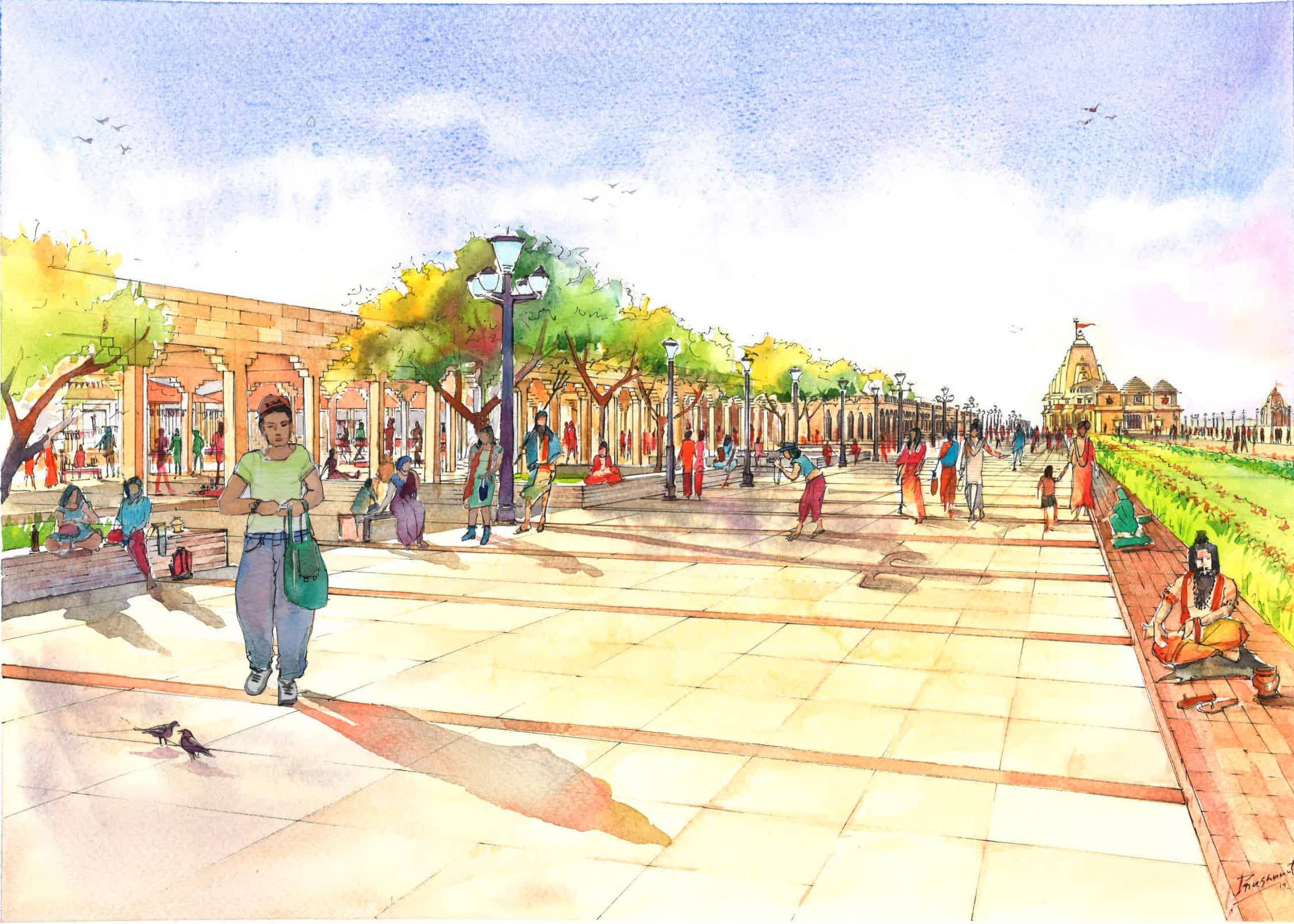
Temple Precinct Realignment & Revival
Despite an imposing 47 m high Shikhara or spire over its sanctum sanctorum topped by a 11.2 m high flag post, the view of the temple from the main approach road was unclear and cluttered due to the unplanned development of structures and irregular placement of hoardings; encroachments on the road, The design plan envisioned a grand axis from the temple down a straight approach road and relocating some of the existing but defunct structures, obtaining a clear view of the temple throughout. It was further developed by upgradation of the Prabhas Patan Museum along with several heritage sites and tourist amenities in the temple precincts. A Z plus security cover enjoyed by the Somnath temple mandated planning the entry and circulation accordingly, with a state-of-the-art pilgrim plaza equipped with security and crowd control systems as well as amenities for tourists at the entrance.
City De-cluttering and Rejuvenation
Scattered development, unchecked encroachments and untidy beaches which deterred the city’s potential to attract tourists was addressed at the city level. Cleaning of beaches, upgradation of roads, and streets providing access to the beaches, improvement of river and sea edges with walkways and landscaping. Some social, infrastructural and cultural interventions were planned like introducing a ‘Ecohaat’ and rejuvenating the museum as a cultural village, which would also help integrate the local community with activities related to tourism development.
Regional Tourism Hub Formed by Networking Secondary Sites
Several secondary sites having the potential to attract tourists located at reasonable distances around the same region were identified to be developed as tourist attractions. This would help to develop a networked circuit for local tourism with Somnath as its hub.
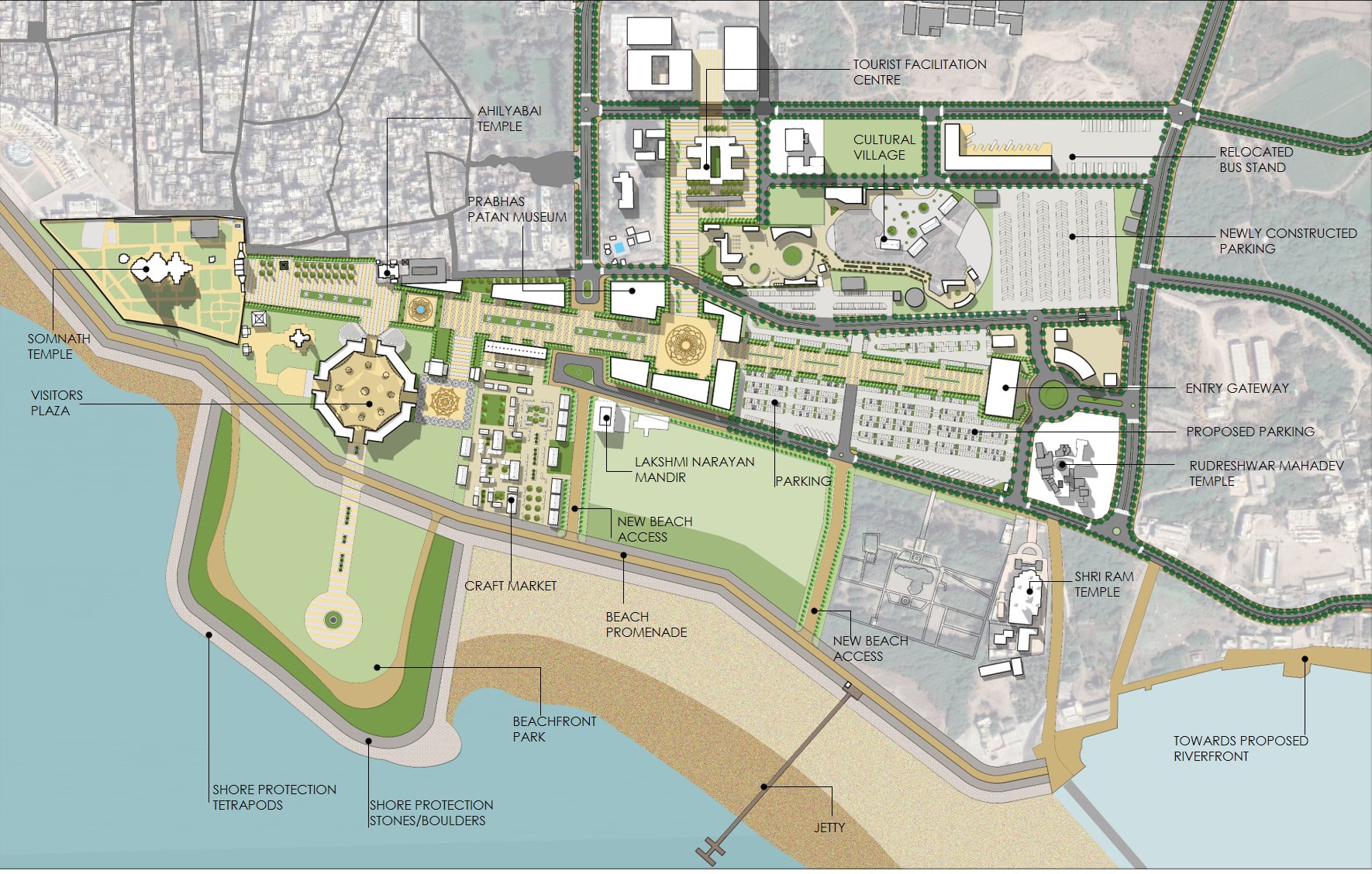
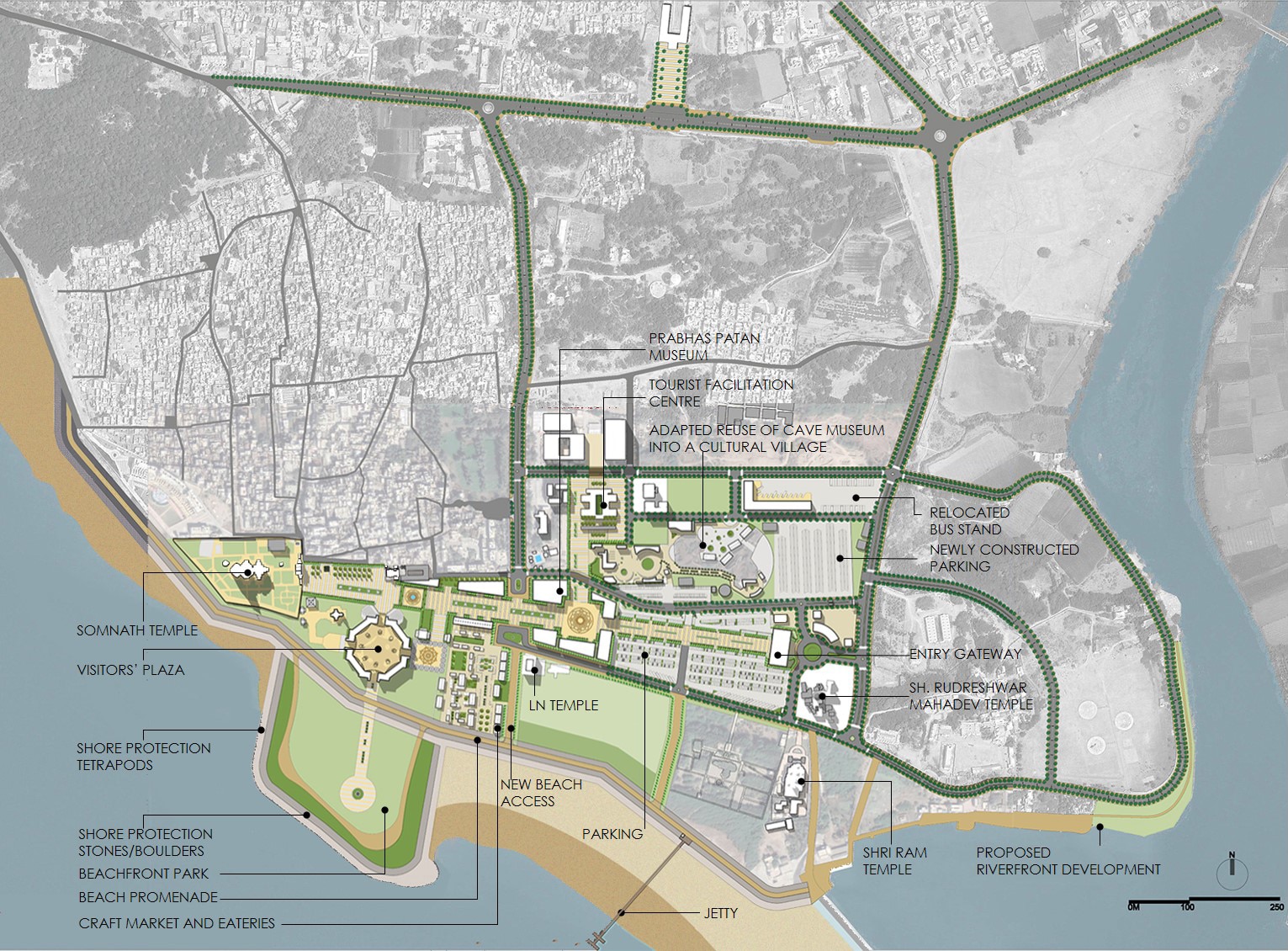
“Integrating Regional Assets for Sustained Tourism Development.”

